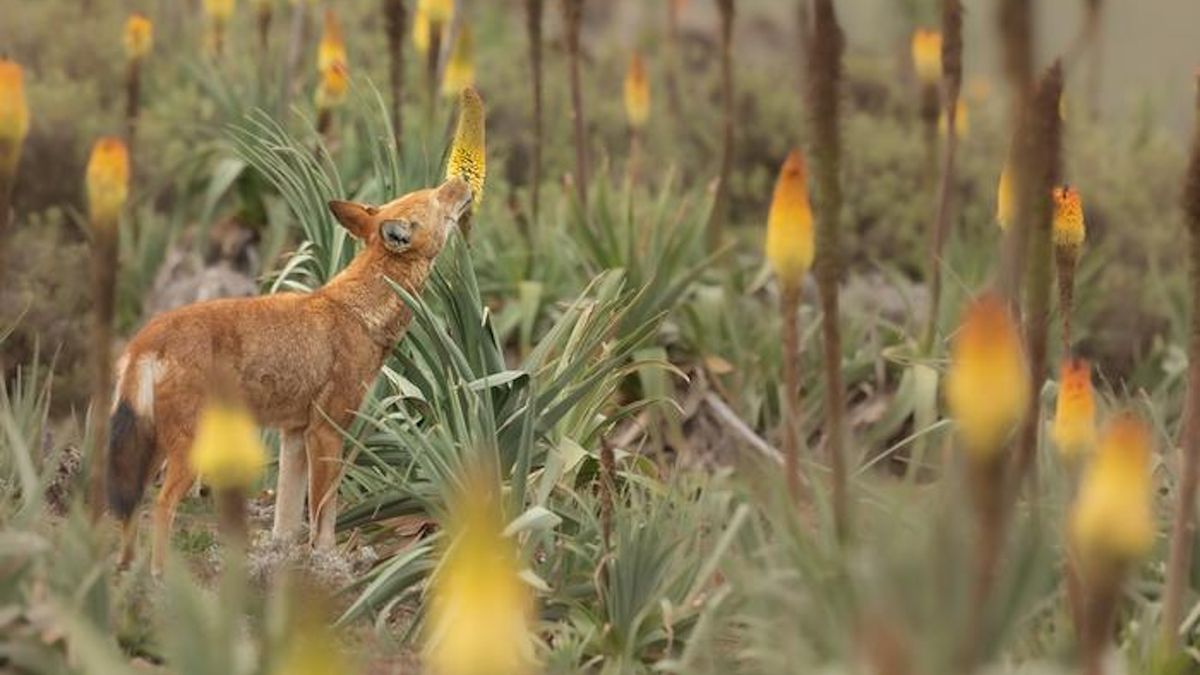One species of wolf has a bit of a sweet tooth.
Striking new photos show Ethiopian wolves (Canis simensis) feeding on the nectar of Ethiopian red hot poker flowers (Kniphofia foliosa).
The otherwise strict carnivores are the first large carnivorous species observed to consume nectar. They may also be the first large carnivores to act as pollinators, researchers said, though more research is needed to confirm their role.
“These findings highlight just how much we still have to learn about one of the world’s most-threatened carnivores,” study co-author Sandra Lai, an ecologist at the University of Oxford, said in a statement.
The Ethiopian red hot poker’s red and yellow flowers produce a sweet nectar that attracts a host of pollinators, including insects and birds. During past field studies, researchers had occasionally spotted the wolves licking the flowers too, so they set out to study the behavior more closely.
In the new study, published Nov. 19 in the journal Ecology, the researchers followed six Ethiopian wolves from three different packs over four days. While most of the wolves visited only a handful of flowers, one visited 20 and another visited 30 in a single snacking foray.
When the wolves visited a red hot poker plant, they usually licked the mature lowermost flowers, which contained the most nectar. In doing so, their muzzles became coated with pollen. This could mean the wolves can spread that pollen to other flowers, the researchers wrote in the study.
However, it’s not yet clear whether the wolves are effective pollinators. Nectar isn’t a significant part of their diet, so more research is needed to determine how often the wolves visit the flowers. And there isn’t evidence yet that a wolf could transfer enough pollen to another flower to pollinate it effectively.
Because the flowers attract many species, it’s also not clear how important any potential pollination from the wolves is to the flowers’ survival. Whether or not they act as pollinators, many other animals have been observed consuming red hot poker nectar as a sweet treat — including humans.
“I first became aware of the nectar of the Ethiopian red hot poker when I saw children of shepherds in the Bale Mountains licking the flowers,” study co-author Claudio Sillero, a conservation biologist at the University of Oxford, said in the statement. “In no time, I had a taste of it myself — the nectar was pleasantly sweet. When I later saw the wolves doing the same, I knew they were enjoying themselves, tapping into this unusual source of energy.”
Future research will involve determining the role of nectar in the wolves’ diet and working out whether the wolves really do act as pollinators, the researchers wrote in the study.


